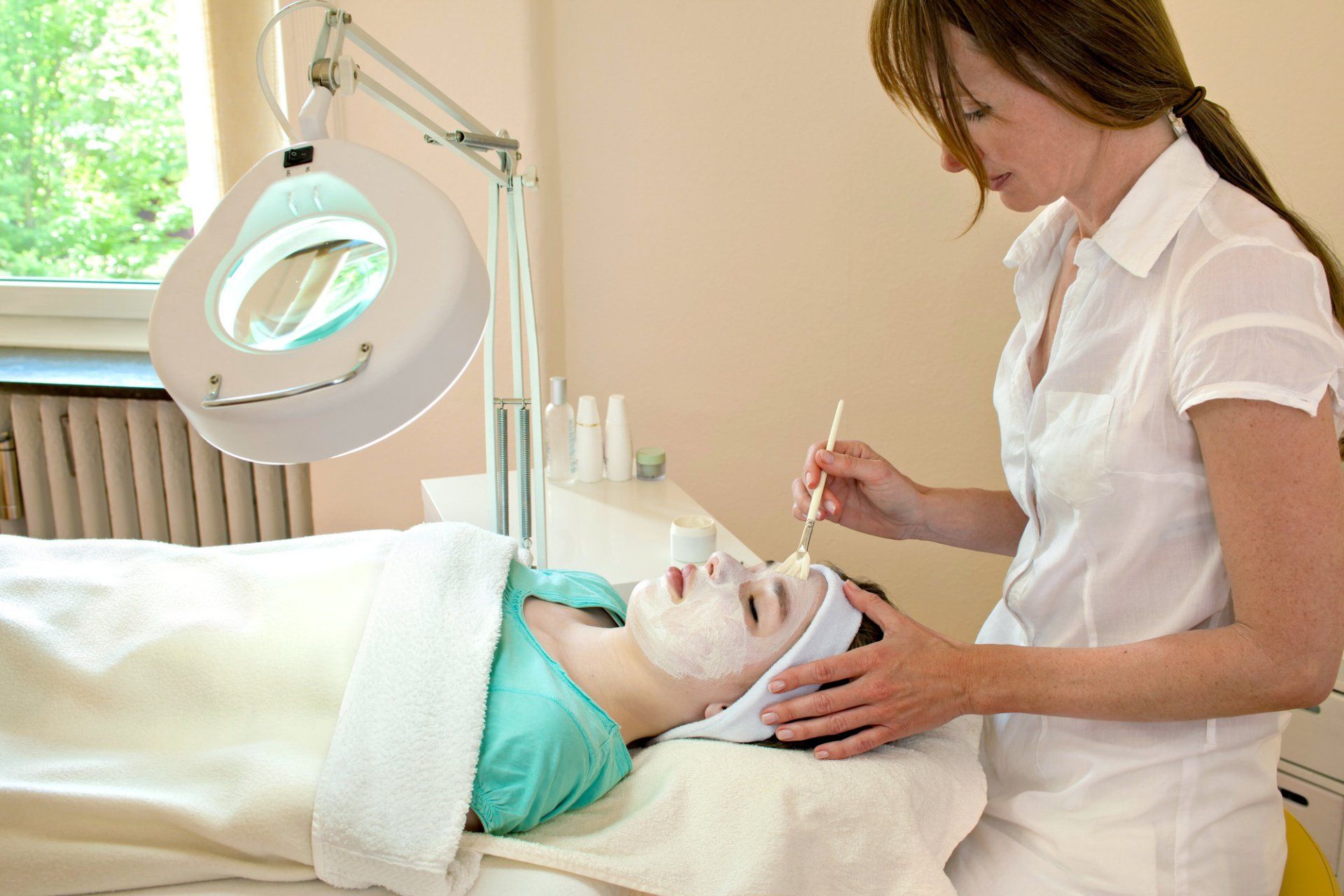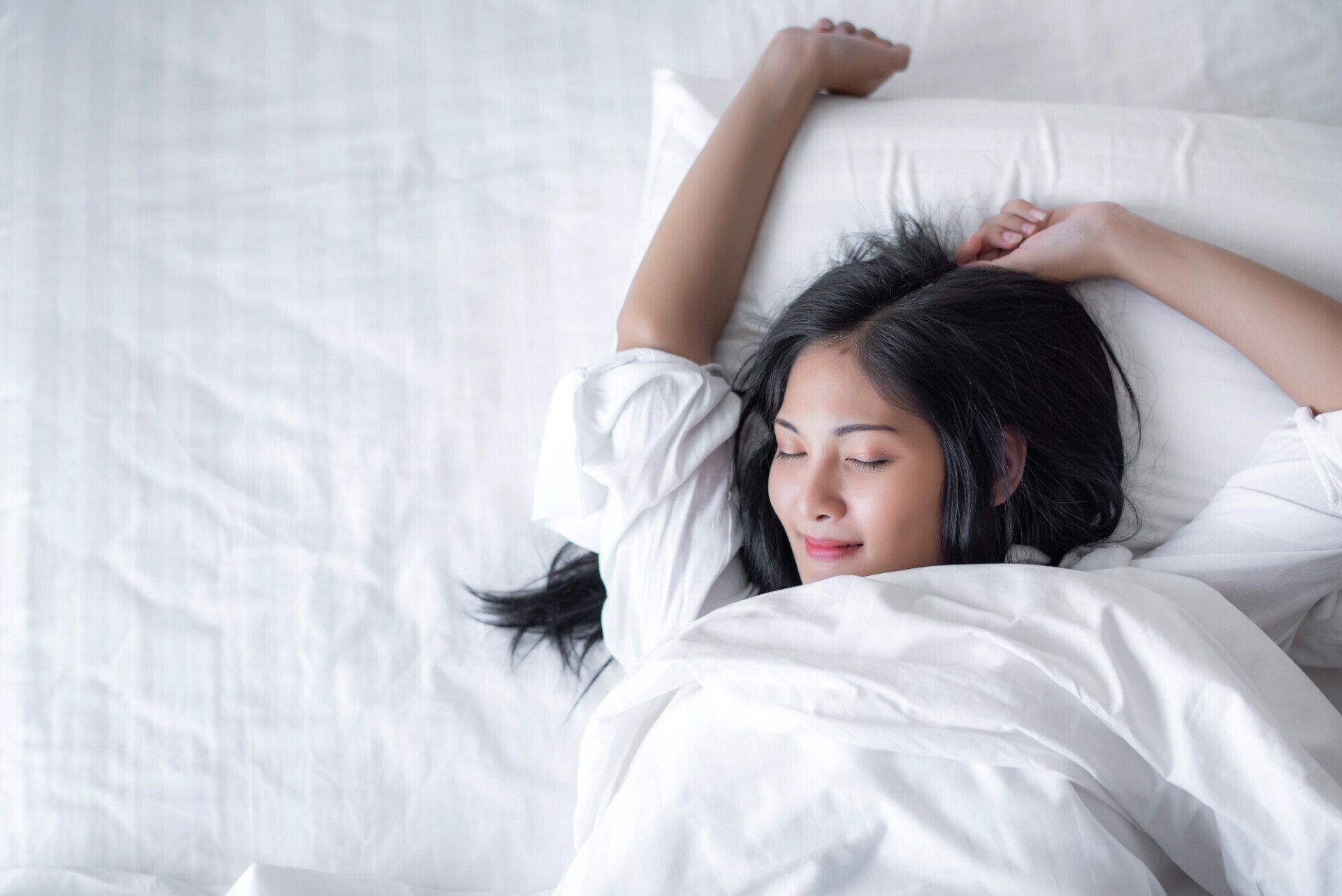Why Should You Master Healthy Sleeping Habits?
Stressed out? Not getting enough sleep? Trying to master healthy sleeping habits? Read on to learn how your sleep habits affect your health and wellbeing.
Did you know that less than half of people in the U.S. under the age of 50 think they get the sleep they need and 63% of the population between 50-64 say they get what they need to function as well. The thing is, we have to get more than just what we need, to function properly. Sleeping is something that most people take for granted.
We all know that we need to get a good night's sleep to function how we should, but many of us don't realize how important it is. Proper sleep helps your body recover from the day's activities, keeps your energy level up and your mind clear, and can even help you stay healthy.
By implementing a few simple changes into your sleep routine, and developing healthy sleeping habits you can get the rest your body needs to function at its best. Here are a few tips on how to fall into the habit yourself!
What are healthy sleeping habits?
Everyone knows that sleep is important. But not everyone does something about it. Mastering healthy sleeping habits can go a long way towards making you healthier and happier. But what are these healthy habits?
Sufficient Sleep
First, let's talk about how much sleep you need to function well. The general indicator is that adults should be getting 7 to 9 hours of sleep each day, but it depends on your own needs as an individual. If you're feeling exhausted throughout the day, this may indicate your body isn't getting enough rest.
However, if you feel groggy for more than two hours after waking up in the morning, this might mean that you're actually getting too much sleep. Yes, there is such a thing as too much sleep. Although there is no one-size-fits-all solution, 7 to 9 hours of sleep every day is the general recommendation.
Consistent Sleeping Patterns
Another healthy sleeping habit that you should try to follow is getting enough sleep each night and at roughly the same time every night. This is how you can start to develop the habit. Going to bed and waking up at different times on different days can make it harder for your body and mind to adjust, which can lead to fatigue even if you're getting enough sleep overall.
Try going to sleep roughly the same time as you usually do (or an hour earlier or later), but keep this consistent by sticking to a sleep routine like watching TV, reading, or doing some stretching before bed every night. This will help your body get used to falling and waking up at similar times, which will result in feeling less tired during the day.
Good Sleep Environment
The third healthy sleeping habit that you should master is having a good sleep environment. Many things can have negative effects on this, but the two main ones are light and sound. Be sure to keep your bedroom well-darkened while you're sleeping, since even dim lights can make it hard for your body to properly produce melatonin (which is essential to initiating sleep).
Also, be sure to avoid any noises or other sounds by using earplugs if necessary. This will make it easier for you to fall asleep when you need to each night. Additionally, try setting your phone to night mode when using before bed and try to keep your phone away from you as you sleep.
Putting it on the nightstand is fine but we often create bad habits where we sleep with our phones on our pillow or in our hands. That's what we want to stray away from doing. This is because we get notifications throughout the night.
Whether it be a weather alert, social media, or a friend texting within a group message, there is always something to keep you from falling asleep, or that could wake you up. There are settings that you can adjust on your phone to have different notifications for different things so it would be a good idea to only set things that could be an emergency to notify you throughout the night.
Healthy Sleeping Habits Take Time
Healthy sleeping habits add up over time If these three healthy sleeping habits seem like too much, don't worry. Mastering healthy sleeping habits just takes time. Try starting with just one habit, to begin with, and once you feel like it's become a good routine for you, try adding another.
Doing this can help you lower stress levels, feel more energized during the day, fight off illness (which makes you even less likely to get restful sleep), and improve your mood. The goal is to improve overall health and improve mental health.
What Are the Effects Of Continuous Lack Of Sleep
It's nearly impossible to feel your best when you're sleep-deprived. Most adults require seven to nine hours of good quality slumber per night, yet almost a third of Americans don't get that much.
In addition to being moody and irritable, not getting enough sleep can have a negative impact on many important aspects of your health and put you at risk for a few things;
Fatigue
If you're constantly tired, it's difficult to engage in physical activities and keep up with normal daily tasks. This may lead you to make poor dietary choices, such as eating more unhealthy foods or consuming too many sugary snacks which can contribute to weight gain and an increased risk for obesity and type 2 diabetes (which is linked to lack of sleep).
Diabetes
Sleep loss can cause you to produce more cortisol, a stress hormone linked to insulin resistance and elevated blood sugar levels. If not reversed, this condition can cause an increased risk for type 2 diabetes and heart disease.
Heart disease
People who get fewer than five hours of sleep per night are at higher risk for coronary artery calcification which is an early indicator of heart disease. On the other hand, people who get between six and eight hours of sleep per night were found to have optimal levels of high-density lipoprotein (HDL), or good cholesterol, and low concentrations of triglycerides, a type of fat in your blood linked to diabetes and heart disease.
Memory impairment
When you're sleep-deprived, the parts of your brain disturbed by Alzheimer's disease begin multiplying in number. This can lead to a decrease in concentration and focus, which makes it difficult for you to retain information during the day.
Not exercising this function regularly can also have a negative effect on your mood by making it harder to access memories associated with pleasure and happiness.
Weight gain
Losing just one hour of sleep per night can increase levels of ghrelin, a hormone that stimulates appetite. In combination with changes in leptin, the hormone responsible for satiety, or feeling full. This imbalance leads people to eat more than they normally would during the day.
Cancer
Studies show that people who sleep fewer than six hours per night for prolonged periods are twice as likely to develop cancer. This is thought to be due to elevated levels of cortisol linked to stress which has also been shown to promote tumor development.
What Are the Benefits of Having a Good Night’s Sleep
Many people tend to be so concerned about their day-to-day responsibilities that they forget to take care of themselves. One of the most important things you should do for yourself is to make sure you get adequate sleep. It’s no secret that without sleep, you won’t feel your best in the physical or mental sense.
Our list of the effects that you can experience due to lack of sleep, proves that. There are a few key benefits that you can use as incentives to get started with mastering healthy sleep habits;
- Better mood
- Get sick less often
- Lower your risk for health issues
- Maintain a healthy weight, and eating habit
- Memory Improvement
- Increase in productivity
- Strengthen your heart
There are multiple benefits to developing healthy sleeping habits. Oftentimes, we don't realize how much we can get done when our tanks are full of energy. Not only will you experience these benefits, with more adequate sleep practices, but you'll also even boost your immune system.
How Can You Get More Out of Your Sleep
Sleeping is one of the most important things in our lives because it allows us to function at our best during the day; however, getting enough sleep every night can be difficult. How many times have you gone to bed wanting to get a good night's rest but then end up tossing and turning or having trouble falling asleep?
On average, most people need roughly 8 hours of sleep each night to be in the middle of the suggested range. If only there were an easier way to master healthy sleeping habits.
It turns out that there are many ways for you to improve your ability to get more out of your sleep so that you can start waking up feeling refreshed and rejuvenated. However, this requires dedication on your part because changing bad sleeping patterns requires time and effort. While some changes require only a few days, others may take weeks to take effect.
If you're willing to make these changes and stick to them, then it will be possible for you to start enjoying the benefits of improved sleeping habits. Here are some tips that can help:
Limit Caffeine Before Bed
Try not to drink anything with caffeine in it after a certain time. This can be a tough task for most, so many people would extend this time frame into the night. The key here is to start getting your body in the pattern of realizing that your caffeine intake drops in the late afternoon.
Caffeine is known to interfere with sleep patterns and prevent people from falling asleep at night. If you must consume caffeine during the day, do so only early in the morning or very late in the afternoon; this should give your body enough time to process out any caffeine before bedtime.
Avoid Those Electronics
Avoid using electronics before going to bed because exposure to blue light suppresses melatonin production, a hormone that tells you when you feel sleepy. You want to avoid this because the blue light stimulates your brain and prevents sleepiness. If possible, try not to use electronics at all before bedtime.
If you must use something, consider using a computer with an actual screen (not an LCD monitor), or reading a book instead of watching television. In addition, turn off as many lights as you can in the house before going to bed.
Get Out of Bed When You Struggle Sleeping
Remember to get out of bed if you cannot fall asleep. The key here is not to force yourself to try and sleep but rather just give yourself some time away from the bedroom so that your mind can start associating the room with being awake instead of restless.
If possible, do something relaxing like reading or writing until you feel sleepy again; then go back into the room and try sleeping once more.
Avoid Long Naps
Avoid napping during the day because this will affect how tired you are at night. It is okay to take a 20-minute nap or so, but anything longer than that will interfere with your nighttime routine and ability to fall asleep.
Keep in mind that you should still try and get as many hours of sleep at night as possible regardless of whether you took a nap during the day.
Exercise Helps
Consider exercising for increased energy during the day. Exercising produces endorphins, which help us feel more awake and active; this can make it easier for us to fall asleep at night because we are not as tired. Exercise also helps reduce stress.
This is another important factor when trying to establish healthy sleeping habits because stress interferes with our body's ability to rest properly. Remember not to exercise too late into the day because this can make it harder to fall asleep at night.
Get The Sleep You Need
So why should you master healthy sleeping habits? Not only will it make your life better in the present by improving your physical health and mental well-being, but you can also help prevent many of the problems associated with insufficient or poor-quality sleep long term. The best thing to recommend is to start small.
Especially if you're not on a sleep schedule, or your body is already used to staying up at different times into the night. Even getting an extra hour of sleep each night can make a difference. While it may be hard to give up your nighttime activities, try seeing if you feel better after going to bed earlier a few times.
Learning how to allow yourself to be well-rested is the first battle. Making it a habit is the second.




